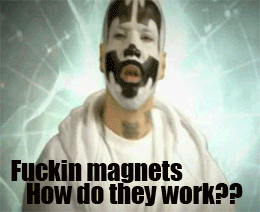Re: you know what's astonishing?
Here is a couple good reads for those who dont know what we are talking about, and maybe help to show reso why he always watches the same news shows.
another good read.....
http://www.npr.org/templates/story/s...ryId=128490874
Here is a couple good reads for those who dont know what we are talking about, and maybe help to show reso why he always watches the same news shows.
another good read.....
http://www.npr.org/templates/story/s...ryId=128490874
CONAN: Well, Brendan Nyhan is a health policy researcher at the University of Michigan. He recently published "When Corrections Fail: The Persistence of Political Misperceptions." That was in the June issue of the Journal of Political Behavior, and he joins us now from the studios of WUOM, Michigan Radio, our member station in Ann Arbor. Nice to have you with us today.
Mr. BRENDAN NYHAN (Robert Wood Johnson Scholar in Health Policy Research, University of Michigan): Thanks for having me.
CONAN: And when facts are readily available, why are they not enough to change people's minds?
Mr. NYHAN: Well, the problem is, you know, as human beings, we want to believe, you know, the things that we already believe. And so when you hear some information that contradicts your pre-existing views, unfortunately, what we tend to do is think of why we believed those things in the first place.
And, you know, so when, you know, we get these corrections, we tend to say I'm right, and I'm going to stick with my view. And the thing that my research, which is with Jason Reifler at Georgia State University, found is that in some cases, that corrective information can actually make the problem worse.
So some people who read Dana's article about immigration may actually have come away from it more strongly committed to the belief that crime has gone up along the border.
CONAN: And indeed are probably demanding his birth certificate.
(Soundbite of laughter)
Mr. NYHAN: That's right.
CONAN: This is a phenomenon described as backfire. You say it's a natural defense mechanism to avoid cognitive dissonance.
Mr. NYHAN: That's right. You know, it's hard, it's threatening to us to admit that things we believe are wrong. And all of us, liberals and conservatives, you know, have some beliefs that aren't true, and when we find that out, you know, it's threatening to our beliefs and ourselves.
And so what we think happens is that the way people, you know, try to resolve this in some cases is to, you know, buttress that belief that they initially held, and, you know, there's a long line of research showing results like this.
CONAN: And again, we'd like to think of our brain as something that's been trained in, you know, Cartesian logic, when in fact, our brain is sort of hard-wired to leap to conclusions very quickly.
Mr. NYHAN: That's right
Mr. BRENDAN NYHAN (Robert Wood Johnson Scholar in Health Policy Research, University of Michigan): Thanks for having me.
CONAN: And when facts are readily available, why are they not enough to change people's minds?
Mr. NYHAN: Well, the problem is, you know, as human beings, we want to believe, you know, the things that we already believe. And so when you hear some information that contradicts your pre-existing views, unfortunately, what we tend to do is think of why we believed those things in the first place.
And, you know, so when, you know, we get these corrections, we tend to say I'm right, and I'm going to stick with my view. And the thing that my research, which is with Jason Reifler at Georgia State University, found is that in some cases, that corrective information can actually make the problem worse.
So some people who read Dana's article about immigration may actually have come away from it more strongly committed to the belief that crime has gone up along the border.
CONAN: And indeed are probably demanding his birth certificate.
(Soundbite of laughter)
Mr. NYHAN: That's right.
CONAN: This is a phenomenon described as backfire. You say it's a natural defense mechanism to avoid cognitive dissonance.
Mr. NYHAN: That's right. You know, it's hard, it's threatening to us to admit that things we believe are wrong. And all of us, liberals and conservatives, you know, have some beliefs that aren't true, and when we find that out, you know, it's threatening to our beliefs and ourselves.
And so what we think happens is that the way people, you know, try to resolve this in some cases is to, you know, buttress that belief that they initially held, and, you know, there's a long line of research showing results like this.
CONAN: And again, we'd like to think of our brain as something that's been trained in, you know, Cartesian logic, when in fact, our brain is sort of hard-wired to leap to conclusions very quickly.
Mr. NYHAN: That's right







Comment